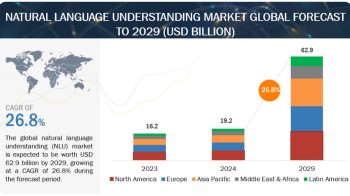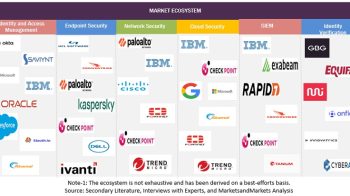LMS redefines learning to compliment the eLearning process. It is not restricted to managing the learning process but comprehends designing and delivery of learning content/course as well. The entire learning process includes development, assessing, executing, evaluating, and monitoring the use cases. LMS provides course authoring and content management features along with collaboration and administration tools for students, teachers, and employees that is used in the academic as well as in the corporate sector. These solutions also meet talent management and training needs in the corporate sector.
LMS does not only emphasize employee training, but also extends support for channel partners and customers, thereby permitting skill development and customer training. LMS also involves efforts to support comprehensive educational goals such as the effective content and performance management of learners and instructors. Furthermore, most of the contemporary LMSs are web-based that focus on expediting access to learning content and administration to create a dynamic learning experience. LMS market is segmented by component type, delivery mode, deployment mode, user type, and region. MarketsandMarkets forecasts the global LMS market to grow from USD 9.2 billion in 2018 to USD 22.4 billion by 2023, at a Compound Annual Growth Rate (CAGR) of 19.6% during the forecast period.
Among user type, the corporate segment is expected to grow at a higher CAGR during the forecast period. As businesses have become more competitive after the second wave of globalization, the importance of human resources has increased significantly over the time and employee training and development has become a new norm in various corporate organizations, in various industries different methods are used for training and development. Based on corporate industry type, the global LMS market has been segmented into, software and technology, healthcare, retail, BFSI, manufacturing, government and defense, and Telecom.
Among deployment type, the cloud deployment type is expected to be the fastest-growing segment in the market during the forecast period. The adoption of cloud deployment type for LMS in the training and development structure is growing rapidly. Most of the vendors are switching from on-premises deployment mode to cloud-based solution. Cloud-based LMS providers are actively delivering continual innovation with security in priority. Some of the LMS cloud providers include SumTotal Systems, Docebo, SAP, Epignosis, ScholarLMS, and Expertus.. The global market for the cloud-based LMS solutions is expected to rise at a substantially high rate in the next 5 years.
APAC is one of the major regions for software providers, as it covers a large terrestrial area and the education industry across the region is expected to flourish. APAC is expected to grow at a higher CAGR. It continues to experience rapid growth in all areas of technology. The APAC region demonstrates a combination of high growth, emerging economies, and the mass adoption of mobile and internet technology. Some prominent vendors in the APAC LMS market are Pearson PLC, Blackboard INC., D2L Corporation, Cornerstone OnDemand, SumTotal Systems, and Educomp. The rapid adoption of LMS by early adopters in this region has made APAC an attractive market, but the growth is fragmented and many regional players have specialized offerings making the LMS ecosystem competitive. The LMS adoption has openly been implemented in this region and rapid growth in population and increasing economic development makes this region the fastest-growing market, internationally. Some countries in this region are among the most technologically developed, while others are weak in terms of adopting the latest technology.
The growth of LMS over the last few years has been remarkable across developed countries. The LMS market is growing at an astounding rate for consumers as well as enterprises. In developing regions, companies and educational institutions are rapidly grabbing the new technology, which would enable them to implement large scale eLearning process in the future. Small developed economies, however, have established LMS in many institutions, according to a report published by UNESCO Institute for Information Technologies in Education, in 2010, 62.9% of eLearning management institutions in South Korea and 70.1% junior collages in South Korea supported r e-LMS and authoring tools.


